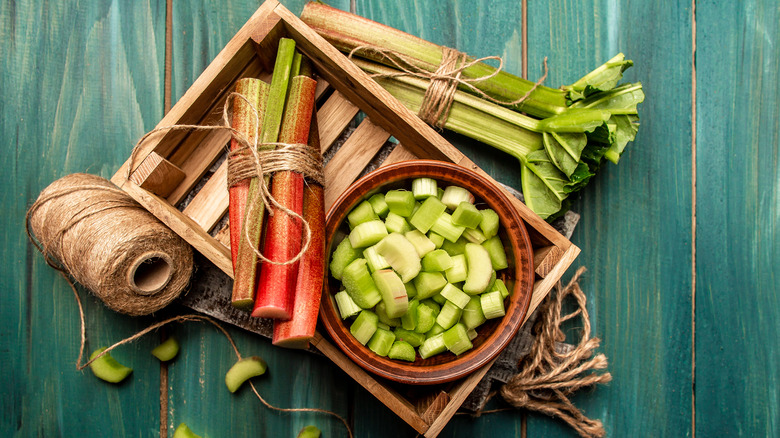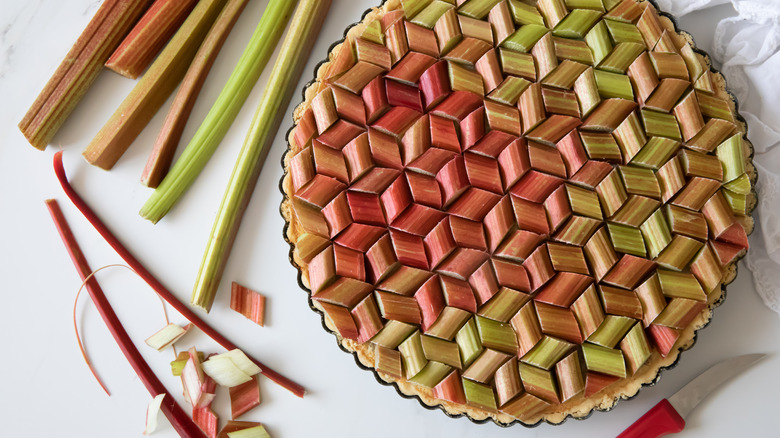The Real Reason You Should Start Eating More Rhubarb
Rhubarb, scientifically known as Rheum rhabarbarum, is a red and green, stalky, perennial vegetable that grows quite well in cool, fertile environments with plenty of sunlight, per Almanac. The rhubarb plant was once found only in Asia, but a couple hundred years ago, it made its way west to Europe and later, to the Americas. Now, people all across the globe are growing — and pretty easily so as most pests are uninterested in the plant. Its tart-like taste means rhubarb is a great choice for sweet recipes like cakes, crumbles, jams, pies, sauces, syrups, and tonics. Rhubarb also has mouthwatering variety names, such as Cherry Red, Riverside Giant, and Valentine. But this delectable plant's flavor is far from the only — or even best — reason to eat this oft-forgotten veggie.
While it is far from safe to eat the leaves of rhubarb, due to the fact that they're poisonous, per Peaceful Dumpling, rhubarb is actually quite good for you.
Rhubarb's a healthy superfood
Rhubarb is considered by some, including Peaceful Dumpling, to be a superfood, and an underrated one at that. Do you have bad circulation or eyesight? Is one of your bones healing, or do you have a kid whose bones are still growing? Are you looking for antioxidants, calcium, fiber, potassium, and vitamins (specifically C and K)? Try rhubarb. It's full of nutrients that improve your health in more ways than one.
Per Taste of Home, rhubarb can foster skin health, prevent upset stomachs, aid the liver and heart, reduce swelling, or help out men lower their cholesterol; There's even reason to believe it could reduce the likelihood of getting cancer or becoming diabetic.t doesn't become good just because there's a veggie present.
If you do decide to get some rhubarb, feel free to buy in bulk. Its stalks can grow a couple of feet tall, so your supplier should have plenty. Plus, the veggie can easily be stored in the fridge for several weeks if snugly placed in a container or wrapped in foil or plastic. You can even keep rhubarb for up to a year in the freezer by sealing it in a plastic bag (via Almanac). If all that isn't reason enough to try rhubarb, we don't know what is!

